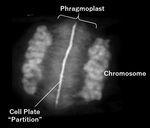- Top
- Kumamoto University URA Office
- Press Release
KU - URA Office
Click on the images to go to the full release.
2021 – 2020 – 2019 – 2018 – 2017 – 2016
-

Mild electrical stimulation with heat shock ameliorates kidney disease
30-Nov-2020
Prof. Hirofumi Kai: Graduate School of Pharmaceutical SciencesA research team from Kumamoto University in Japan has found that the combination of weak pulsed electrical current and heat exerts anti-inflammatory and anti-fibrotic effects in the kidneys, as well as a protective effect against nephrotic syndrome (NS) by inhibiting apoptosis (cell death) of kidney cells.
-

T-cell abnormalities in severe COVID-19 cases
20-Nov-2020
Assoc. Prof. Masahiro Ono: International Research Center for Medical SciencesThere is evidence for a T-cell abnormality in critically ill COVID-19 patients. Kumamoto University researchers analyzed lung tissue from COVID-19 patients to clarify the problem.
-

NO DRINKING! NO FIGHTING! The laws of early Edo Japan to keep the peace
18-Nov-2020
Prof. Tsuguharu Inaba: Faculty of LettersResearchers have found an early Edo period document stipulating the Hosokawa clan code of conduct. The thirteen articles from the head of the Hosokawa clan delegate full authority to vassals to lead a construction project and prevent conflicts with other clans.
-

X-ray imaging of a beetle's world in ancient earthenware
17-Nov-2020
Prof. Hiroki Obata: Faculty of Humanities and Social SciencesUsing X-rays, Professor Hiroki Obata has imaged 28 impressions of maize weevils on pottery shards from the late Jomon period (around 3,600 years ago). This is the first example of pottery with multiple weevil impressions discovered in Kyushu and has the highest impression density yet found in Japan.
-

Convenient antioxidant capacity measurement of food
12-Nov-2020
Prof. Masashi Kunitake: Institute of Industrial Nanomaterials (IINa)Researchers have developed a system to quickly and easily measure the antioxidant capacity of food using a gel form Bicontinuous Microemulsion (BME), a mixture of water and oil that do not normally mix, integrated with a sheet-type electrode.
-

A key player behind parental chromosome matching during meiosis
6-Nov-2020
Prof. Kei-ichiro Ishiguro: Institute of Molecular Embryology and Genetics (IMEG)Researchers have clarified how homologous chromosome pairing—a process necessary for sperm and egg formation where paternally- and maternally-derived chromosomes match and exchange genetic information during meiosis—attracts factors that play a monitoring role.
-

Down Syndrome-associated gene suppresses age-related corneal clouding
5-Nov-2020
Prof. Takashi Minami: Institute of Resource Development and Analysis (IRDA)An analysis of aging in Down syndrome and hypercholesterolemia mouse models has suggested that a Down syndrome-associated gene protects against abnormal vascularization of the cornea and associated corneal opacity (blindness).
-

Aged cell variations may control health and onset of age-related diseases
26-Oct-2020
Prof. Mitsuyoshi Nakao: Institute of Molecular Embryology and Genetics (IMEG)Cellular senescence variations during the aging process could lead to control of health and onset of age-related diseases.
-

Damaged muscles don't just die, they regenerate themselves
12-Oct-2020
Assoc. Prof. Yusuke Ono: Institute of Molecular Embryology and Genetics (IMEG)Components leaking from broken muscle fibers activate "satellite" muscle stem cells.
-

Skeletal muscle development and regeneration mechanisms vary by gender
12-Oct-2020
Assoc. Prof. Yusuke Ono: Institute of Molecular Embryology and Genetics (IMEG)Female mice lacking the estrogen receptor beta (ERβ) gene, both fiber-specific and muscle stem cell-specific, have abnormalities in the growth and regeneration of skeletal muscle.
-

Decreased protein degradation in cerebellum leads to motor dysfunction
23-Sep-2020
Assoc. Prof. Takahiro Seki: Faculty of Life ScienceResearchers have developed an animal model that reproduces motor dysfunction and cerebellar neurodegeneration similar to that in spinocerebellar ataxia (SCA).
-

Japan's geologic history in question after discovery of metamorphic rock microdiamonds
4-Sep-2020
Prof. Tadao Nishiyama: Graduate School of Science and TechnologyA research collaboration based in Kumamoto University has discovered microdiamonds in the Nishisonogi metamorphic rock formation (Nagasaki Prefecture), showing that the crust penetrated deeper than 120 km below the surface of the Earth.
-

Fatty acid receptor involved in temperature-induced sex reversal of Japanese medaka fish
4-Sep-2020
Prof. Takeshi Kitano: Graduate School of Science and TechnologyActivation of PPARα, a fatty acid receptor that detects fatty acids in cells and regulates physiological functions, causes the masculinization of Japanese rice fish (medaka).
-

Molecule secreted by cancer-associated fibroblasts promotes anticancer drug resistance
21-Aug-2020
Prof. Takatsugu Ishimoto: International Research Center of Medical Sciences (IRCMS)Researchers have found that the Annexin A6 molecule contained in extracellular vesicles (EVs) is secreted by cancer-associated fibroblasts (CAFs) and taken up by gastric cancer cells, resulting in resistance to anticancer drug treatments.
-

Reproducing the pathophysiology of polycystic kidney disease from human iPS cells
21-Aug-2020
Prof. Ryuichi Nishinakamura: Institute of Molecular Embryology and Genetics (IMEG)A joint research project has successfully reproduced the pathogenesis of autosomal dominant polycystic kidney disease (ADPKD) from human iPS cells in vitro.
-

NSD2 enzyme appears to prevent cellular senescence
7-Aug-2020
Prof. Mitsuyoshi Nakao: Institute of Molecular Embryology and Genetics (IMEG)The enzyme NSD2, which is known to regulate the actions of many genes, has been found to also block cell aging.
-

Amygdala changes in male patients with schizophrenia and bipolar disorder
9-Jul-2020
Prof. Kazuya Iwamoto: Department of Molecular Brain ScienceDNA methylation occurs in the gene that codes serotonin transporter (SERT), a protein that regulates neurotransmitter transmission, in schizophrenia and bipolar patients.
-

Cause of abnormal groundwater rise after large earthquake
1-Jul-2020
Assoc. Prof. Takahiro Hosono: Int'l Research Org. for Adv. Science & Technology (IROAST)The first research project to capture detailed hydrological environment changes caused by a large earthquake.
-

A novel sperm selection technology to increase success rates of in vitro fertilization
1-Jul-2020
Prof. Toru Takeo: Institute of Resource Development and Analysis (IRDA)A Kumamoto and Kyoto University research collaboration has developed a technique that uses a cell sorter with microfluidic chip technology to reduce cell damage and improve in vitro fertilization (IVF) rates.
-

Precise measurement of liquid iron density under extreme conditions
26-Jun-2020
Assist. Prof. Yoichi Nakajima: Priority Organization for Innovation and Excellence (POIE)An international research team has precisely measured the density of liquid iron under conditions similar to those at Earth's outer core: 1,000,000 atm and 4,000 degrees C.
-

The balancing act between plant growth and defense
16-Jun-2020
Prof. Shinichiro Sawa: Graduate School of Science and TechnologyResearchers have pinpointed the mechanism that regulates the balance between plant growth and defense.
-

The novel mechanisms for inflammation and cancer induced by HTLV-1
16-Jun-2020
Prof. Masao Matsuoka: Faculty of Life ScienceResearchers have clarified the mechanism by which human T-cell leukemia virus type 1 (HTLV-1) causes inflammation and oncogenesis.
-

New treatment target verification for myelodysplastic syndrome
8-Jun-2020
Assoc. Prof. Goro Sashida: International Research Center for Medical Sciences (IRCMS)The transcription factor RUNX3 has been found in myelodysplastic syndrome (MDS), a blood cancer that presents often in the elderly, revealing a cancer growth function for what had been considered a tumor suppressor.
-

High uric acid levels benefit women's lungs in aging and disease
5-Jun-2020
Assoc. Prof. Tsuyoshi Shuto: Graduate School of Pharmaceutical SciencesThe antioxidant uric acid protects against declining lung function from age or lung disease, especially in women.
-

Discovery of a novel gene involved in DNA damage repair and male fertility
4-Jun-2020
Prof. Kei-ichiro Ishiguro: Institute of Molecular Embryology and Genetics (IMEG)The gene C19ORF57 plays a critical role in meiosis and appears to be related to the cause of male infertility.
-

New nanocarrier drug delivery technology crosses the blood-brain barrier
16-Apr-2020
Prof. Sumio Ohtsuki: Graduate School of Pharmaceutical SciencesKumamoto University researchers have developed a cyclic peptide (a chain of amino acids bonded circularly) that enhances blood-brain barrier penetration.
-

Identification of new factors important in maintaining lung function in the elderly
6-Apr-2020
Assoc. Prof. Tsuyoshi Shuto: Graduate School of Pharmaceutical SciencesKumamoto researchers find that DsbA-L is an important factor in pulmonary function.
-

Alport syndrome severity can be predicted by causative protein genotype
6-Apr-2020
Assoc. Prof. Tsuyoshi Shuto: Graduate School of Pharmaceutical SciencesResearchers from Kobe and Kumamoto Universities have successfully developed a system to predict the severity of Alport syndrome.
-

Extract from seeds of the Melinjo tree may improve obesity and diabetes
23-Mar-2020
Assoc. Prof. Tsuyoshi Shuto: Graduate School of Pharmaceutical SciencesResearchers from Kumamoto University who study plants from around the world for useful medicinal properties have found that Melinjo seed extract (MSE) stimulates the production of adiponectin, a beneficial hormone that improves obesity and diabetes, and that individual genotype differences are responsible for variations in its efficacy.
-

Nobody at home: A great increase in out-of-home rates over 28 years in Kumamoto, Japan
3-Mar-2020
Assoc. Prof. Takuya Maruyama: Center for Water Cycle, Marine Environment, and Disaster Management (CWMD)Novel analysis of Kumamoto metropolitan area travel data reveals rates of households with everyone out-of-home has been increasing over the past 30 years.
-

Actin filaments control the shape of the cell structure that divides plant cells
28-Feb-2020
Assoc. Prof. Takumi Higaki: Int'l Research Org. for Adv. Science & Technology (IROAST)Microscopic video analysis reveals that the shape of phragmoplasts--cell structures that create the partition between two dividing plant cells--is controlled by actin filaments.
-

Discovery of genes involved in infertility
6-Feb-2020
Assoc. Prof. Kei-ichiro Ishiguro: Institute of Molecular Embryology and Genetics (IMEG)Kumamoto University researchers from IMEG have found that the gene "Meiosin" acts as the on switch for meiosis, the cell type of cell division that creates germ (egg & sperm) cells.
-

Efficient cryopreservation of genetically modified rat spermatozoa
31-Jan-2020
Prof. Naomi Nakagata: Center for Animal Resources and Development (CARD)A new cryopreservation method for rat spermatozoa developed by CARD improves sperm motility after thawing and greatly increases in vitro fertilization rates. This should be very useful for preserving genetically modified rat strains used in research.














